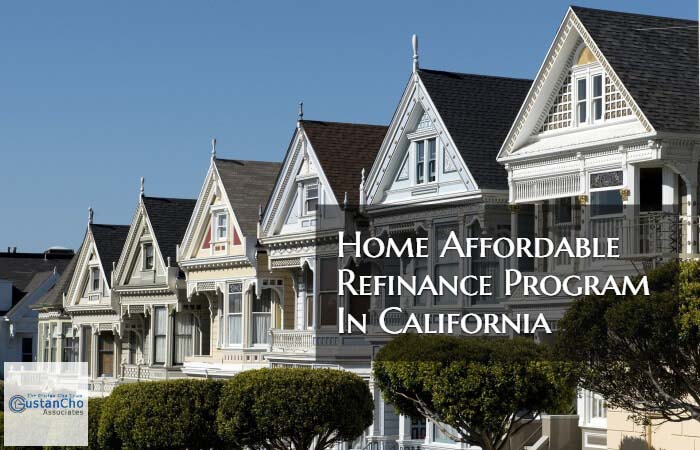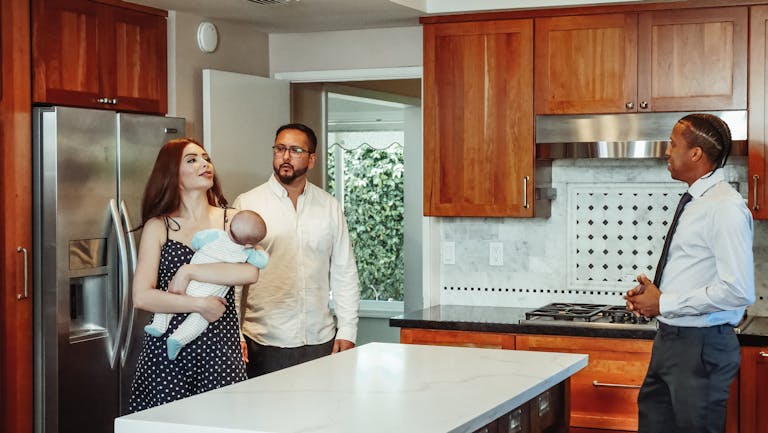Refinancing FHA To Conventional Loan Eliminating FHA MIP
This guide covers refinancing FHA to conventional loan eliminating FHA mortgage insurance premiums. Home sales are hot throughout the United States. Homes in Florida, California, Illinois, Virginia, Texas, Georgia, Indiana, Wisconsin, Washington, and the United States have appreciated double digits in the past 24 months. Dale Elenteny, a senior mortgage loan advisor at Gustan Cho Associates, explains refinancing FHA to conventional loan eliminating FHA MIP as follows:
The housing market remains strong. It seems the demand is strong, with no indication of a slowdown. Homeowners who purchased homes a few years ago should consider refinancing FHA to Conventional loan and see if they can avoid paying the expensive FHA mortgage insurance premium.
Most of my pre-approved mortgage clients are having an extremely hard time finding a property they like, and when they do, multi-home purchase offers and bidding wars are most likely to happen. With homes appreciating how they are, many homeowners who purchased their homes in the past few years may qualify for refinancing FHA To Conventional loan and eliminate their FHA mortgage insurance premium. Even if homes did not appreciate 20%, there are conventional mortgage loan programs with Lender Paid Mortgage Insurance. LENDER PAID MORTGAGE INSURANCE, or LPMI, for a slightly higher mortgage rate. The conventional borrower is not required to pay private mortgage insurance. Not all lenders offer LPMI. But for those that do, it is a great product and can offer a homeowner tens of thousands of dollars of savings over their mortgage term.
Why Refinancing Can Benefit Homeowners
Many homeowners went through the wringer when they went through their mortgage loan application process. The last thing they want to even think about is going through the mortgage application process all over again. However, refinancing can help a homeowner save tens of thousands of dollars over the life of their mortgage loan term. Getting a free, no-obligation cost analysis from a lender and seeing potential savings cannot hurt. A lender is highly regulated. Federal laws mandate borrowers need to have tangible net benefits for the mortgage loan originator to pursue refinancing applicant’s refinancing mortgage loan applications. There needs to be a 5% payment savings on the loan applicant’s monthly payments to be considered a net tangible benefit for the borrower.
Refinancing FHA To Conventional Loan Eliminating FHA Mortgage Insurance Premium
FHA’s annual mortgage insurance premium is 0.55% of the loan amount. Those with a 30-year fixed-rate FHA loan after mid-2013 cannot cancel their FHA loan until the loan is paid off or refinanced. On a $200,000 home purchase FHA loan, the mortgage note holder pays 88 per month in FHA mortgage insurance premium, which is 0.55% of the $193,000 FHA loan balance divided by 12 months. $88 monthly based on a $200,000 home purchase with a 3.5% down payment at a 7.0% mortgage rate.
Many homeowners may not realize that their homes may have appreciated 20% or more in the past several years. Many homeowners purchased their homes after the financial and real estate collapse of 2008, and properties have steadily increased in value year after year. Even if their homes have not appreciated 20%, the Lender Paid Mortgage Insurance program on conventional loans offers no private mortgage insurance required by the borrower for a slightly higher rate.
Conventional mortgage rates for prime borrowers with higher credit scores are 6.875%. 15-year fixed conventional mortgage rates are below 6.125%. FHA mortgage insurance premiums can no longer be deducted and claimed as a tax deduction. Even if the homeowner elects to pay private mortgage insurance, private mortgage insurance on conventional loan programs can be as low as a third of the FHA mortgage insurance premium. Mortgage insurance premiums are no longer tax deductible, but mortgage interest still is tax deductible, so Refinancing FHA To Conventional Loan makes sense.
Conventional Loan Programs Have Stricter Lending Guidelines
Conventional loan programs have stricter mortgage lending guidelines, and not everyone with an FHA loan can refinance their FHA loan into a Conventional loan. For example, the waiting periods for conventional loans after a bankruptcy, foreclosure, deed-in-lieu of foreclosure, or short sale differ from those of waiting periods on FHA loans. A mandatory waiting period is four years after a bankruptcy discharge to qualify for a conventional loan. Whereas for FHA loans, the waiting period is two years after a bankruptcy discharge. The waiting period after a foreclosure to qualify for a conventional loan is seven years, whereas the waiting period after a foreclosure is three years for an FHA loan. Waiting periods after a deed-in-lieu of foreclosure or short sale for a conventional loan is four years. Need 5% equity or down payment for a home purchase. HUD allows a three-year waiting period after a deed-in-lieu of foreclosure or short sale.
Refinancing FHA To Conventional Loan: How Long Do You Intend To Living In Your Current Home
Closing costs are associated with refinancing FHA to conventional loan. Your mortgage loan originator can review your break-even point refinancing FHA to conventional loan. The break-even point is where how much you will be saving on your monthly payments with your refinance mortgage loan and how long it will take those savings to cover your closing costs. For example, if your closing costs on your refinancing are $3,000 and your payments are reduced by $300 per month after your refinancing, then it will take you ten months to recoup your $3,000, and thereafter, your actual savings start. Refinancing may not be wise if you plan on selling your home in ten months or less.. Discuss your intention with your mortgage loan originator, and he or she will guide you in the right direction.
Why Is Mortgage Insurance Required?
The main purpose of mortgage insurance is to protect lenders in the event borrowers default their mortgage loan.
- For FHA loans, the mortgage insurance premium is 0.85% of the balance amount
- Conventional loans, the mortgage insurance premium varies depending on the amount of down payment
- There is no fixed rate on private mortgage insurance with conventional loans
- Borrowers credit scores, type of property, down payment, market conditions are all factors in private mortgage insurance on conventional loans
FHA Loans is a fixed 0.085% of the FHA Mortgage Loan Balance.
Eliminating FHA Mortgage Insurance Premium
For homeowners who have FHA loans, the 0.085% mortgage insurance premium can be a big portion of their monthly mortgage payment.
- The only way to eliminate that hefty mortgage insurance premium is to refinance the FHA into a conventional loan with at least 20% equity
- Conventional loans are credit score sensitive unlike FHA loans
- To prepare to refinance current FHA into a conventional loan, the borrower should start working on their credit
- Should be making sure that they pay their monthly credit obligations on time
- Make sure that you have various types of credit trade lines such as three credit cards, installment loans, and auto loans
- With credit card debt, make sure credit balance does not exceed 10% of the credit limit
- To get the best possible mortgage rate on conventional loans, borrowers should have a 740 credit score or higher
- Borrowers who do not have 20% equity, no worries
- There are conventional programs where the lender pays the mortgage insurance
- However, the rates are slightly higher
- For the best available mortgage rates on a conventional loan with no mortgage insurance, homeowners should have at least 20% equity
- 25% of equity will get homeowners even lower mortgage rates
Home prices are steadily increasing so while borrowers are boosting credit scores, home is probably appreciating at the same time where borrowers can get the best of both worlds.
Eliminating Mortgage Insurance Premium On Conventional Loans
If the home appreciates and homeowners feel they have 20% equity in a home, borrowers can request the lender to eliminate private mortgage insurance. Or can pay down mortgage balance so it reaches 20% equity.
- Not all lenders will eliminate mortgage insurance premium just because they have 20% equity or are paying down mortgage balance so loan to value is at 80% LTV
- If the current lender is giving borrowers a hard time, the best way of getting rid of mortgage insurance premium is to refinance the current mortgage into a new conventional loan
- In the event homeowners do not have 20% equity, there are new conventional mortgage programs that do not require the borrower to pay mortgage insurance
- It is called LPMI conventional loan program, Lender Paid Mortgage Insurance
LPMI is where lenders will be responsible for the monthly mortgage insurance in lieu of a slightly higher mortgage rate or an upfront private mortgage insurance premium.
How To Get Started In Eliminating MIP
Real Estate Values have increased nationwide. Many counties in California, Texas, Florida, Illinois, Utah, Ohio, District Of Columbia, New Mexico, Georgia, Alabama, Arkansas, Tennessee, Oklahoma, Indiana, Iowa, Minnesota, Wisconsin, Michigan has seen home values appreciate year after year. Many homeowners do not realize that they may have 20% equity or close to it. Many homeowners can qualify for refinancing their FHA Loans into Conventional. Contact us at Gustan Cho Associates to see the amount of money you can save by refinancing to eliminate mortgage insurance premiums.







